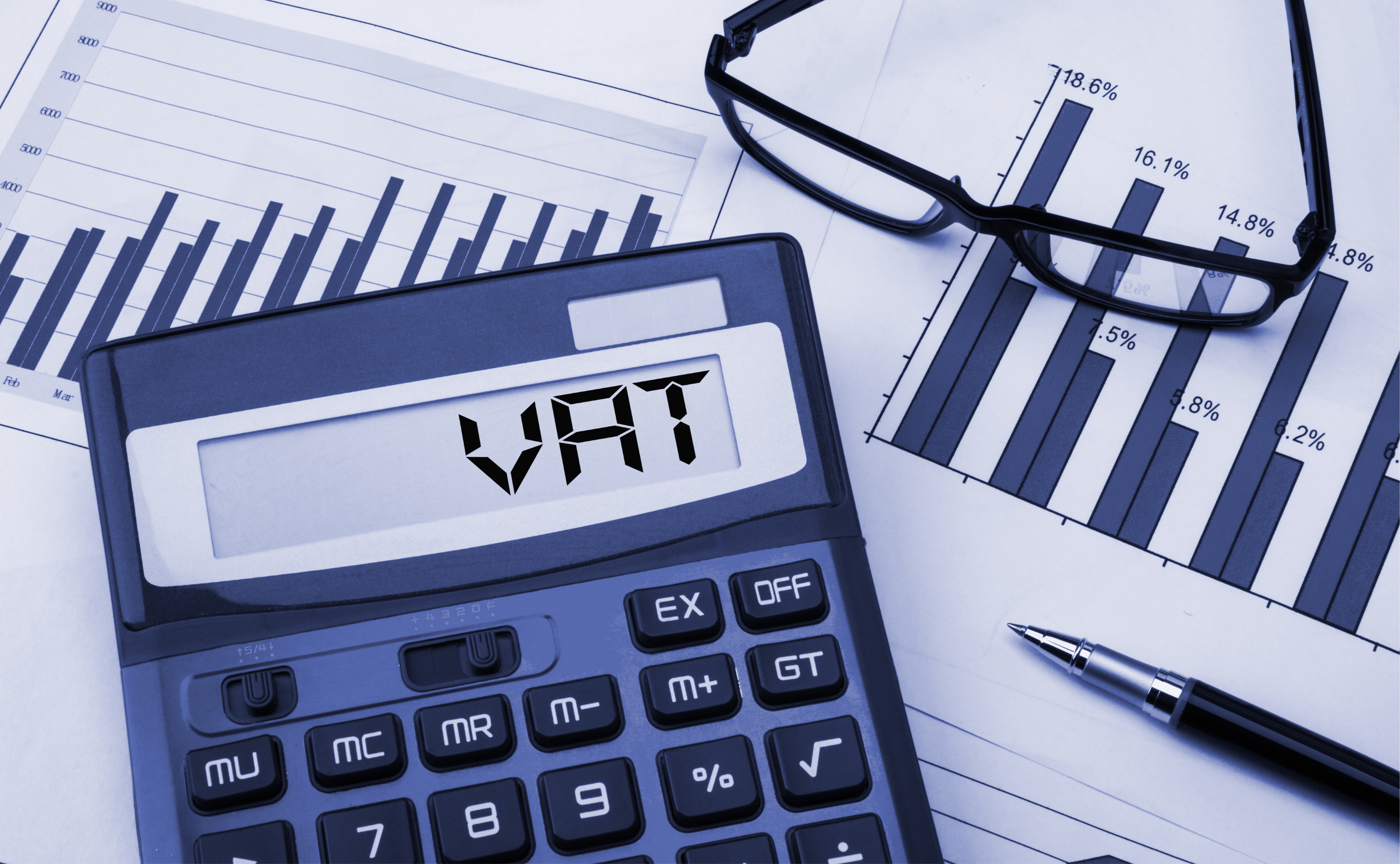Any links to online stores should be assumed to be affiliates. The company or PR agency provides all or most review samples. They have no control over my content, and I provide my honest opinion.
Many businesses make the decision to voluntarily register for VAT before it becomes a legal requirement (registering is compulsory for any UK business that has a taxable turnover of £85,000 or more). At first glance, it may sound counterintuitive to do so. After all, why would any business willingly register to pay a tax when it isn’t compulsory?
But there are several circumstances in which a business may benefit from registering for VAT. And whether you’re starting a brand new business venture or simply looking to adapt to using VAT software for your company registration, there are many reasons why you may want to consider registering for VAT, regardless of your taxable turnover income.
But before you can decide on the next best steps for your business, let’s establish what we mean by VAT and its overall purpose.
What Exactly Is VAT?
VAT, or Value-Added Tax, is a form of consumption tax that’s placed on purchased goods, services, and any other taxable products. VAT plays an important role for many businesses, as it can be charged on several goods and services.
UK businesses that are VAT-registered include a VAT charge on most of the services and products they provide. When sold to other businesses (commercial and non-commercial), VAT is added to the sale price. A VAT-registered company can also reclaim any VAT paid while purchasing goods or services of their own.
Although VAT-registered businesses are expected to pay and report all VAT practices to HMRC, the cost itself has already been paid by the consumer. How? Because VAT isn’t a tax of your specific business and is already covered in the purchase price of any products bought by the customer.
While it’s still a given that any VAT-registered company should maintain detailed records, the shift online and the rise of making tax digital software tool innovations have made the process far easier to manage.
Situations Where a Business May Register for VAT
Below are just a few examples of a situation where a business may choose to voluntarily register for VAT.
- If you’d prefer to shield your specific turnover amount from customers or clients.
- You’re looking to claim back the input tax you pay to suppliers (if your input tax is greater than the VAT you charge customers).
- You’re legally required to due to your taxable turnover being £85,000 or more.
- You’d prefer the peace of mind it brings in the event of you hitting the turnover limit, without incurring any penalties.
The Main Benefits of Registering for VAT
There’s more to registering your company for VAT beyond adhering to the legal thresholds of VAT-registered business requirements. Here are the 5 main benefits of getting your business VAT-registered.
1.
Regardless of how much your turnover is per year, being VAT-registered gives your business the ability to be seen as a larger company in the eyes of your consumers and competitors.
2.
If you’re selling to other VAT-registered companies, that business can reclaim the VAT, keeping your prices extra competitive.
3.
Even if you hadn’t registered at the time, you can actually claim VAT on some items that your business has bought prior to your VAT registration date.
4.
Registering now sets your business up for future expansion, without having to worry over the legal thresholds for VAT. You’ll be fully prepared for the next stage of your business’s growth.
5.
If your sales fall below the standard rate of 20%, the reduced rate of 5%, or even the zero rate of 0%, you’re more than likely going to get repayments due to your VAT sales being lower than your VAT costs.
The Main Disadvantages of Registering for VAT
Of course, there are some potentially negative consequences of registering your business for VAT as well. As the goals and objectives of your specific business are unique, it’s important to consider whether these negative aspects outweigh the positives.
Remember – if your business doesn’t exceed the £85,000 turnover threshold then these 5 main negative aspects of registering your company won’t apply to you.
1.
In number 5 of the VAT benefits, we discussed the likelihood of repayments due to your input tax being more than your output tax. However, on the other side of that coin, if your output tax (sales) is more than your input tax (purchases), then you may end up paying more to the HMRC.
2.
If your customers or clients aren’t VAT-registered, they can’t reclaim VAT on your goods and services. This may mean pricing these customers out of your business.
3.
This extra 20% VAT on your sales invoices and overall pricing may alter the perception of your business to the general public.
4.
A VAT-registered business has to adhere to strict administrative guidelines. And while the digitisation of VAT admin has reduced some of the stresses associated with this, all of your documents, receipts and invoices must be well kept, and VAT returns are required to be filled out every three months.
5.
Despite these digital assistance platforms for your VAT tasks, you may experience increased admin costs to keep up with these stricter guidelines.
UK VAT Business Statistics to Consider
If you’re still not quite sure about whether your business would benefit from registering for VAT, here are some recent statistics that may help to guide you towards making the best decisions possible.
Last year’s census from the Office for National Statistics revealed that in 2021:
- The number of Value Added Tax (VAT) businesses in the UK rose to 2.77 million (an increase of 0.6%).
- Science and tech industries make up 16.4% of all VAT-registered businesses in the UK.
- The post-COVID online shopping boom has propelled transport and storage businesses into the highest growth rate position for 2 years running.
The Different Types of VAT Schemes
There are several VAT schemes available to businesses, all of which cater to specific needs and circumstances. The 3 most common schemes are listed below.
Flat Rate Scheme
This scheme allows you to pay a percentage of your turnover to HMRC. The percentage is dependent on the industry you work in. Under this scheme, your business cannot reclaim VAT on your purchases. To use this scheme, your company needs to have a turnover under £150,000.
Cash Accounting Scheme
This scheme only requires your business to pay the VAT income you’ve acquired during a quarter. However, you won’t be able to reclaim VAT on any unpaid invoices under this scheme. Cash Accounting Schemes are popular with small businesses, but you’ll need to have a turnover below £1.35 million to qualify.
Annual Accounting Scheme
This scheme allows you to make advanced payments on your bill over the course of the year. Then, you’ll either file a single VAT return and pay the rest, or claim a refund back on any overpayments. This scheme is only for businesses with a turnover below £1.35 million.
Final Thoughts
After learning more about what registering your business for VAT entails, the most important thing to remember is that no two companies are the same and that what’s of benefit to your business and customers should come before anything else.
If you do choose to register for VAT, it’s essential that you keep track of records, accounts, and receipts immediately. If you’re worried about how to stay on top of these admin tasks, use the advancements available to make it easier and avoid any unwelcome surprises in the future.
I am James, a UK-based tech enthusiast and the Editor and Owner of Mighty Gadget, which I’ve proudly run since 2007. Passionate about all things technology, my expertise spans from computers and networking to mobile, wearables, and smart home devices.
As a fitness fanatic who loves running and cycling, I also have a keen interest in fitness-related technology, and I take every opportunity to cover this niche on my blog. My diverse interests allow me to bring a unique perspective to tech blogging, merging lifestyle, fitness, and the latest tech trends.
In my academic pursuits, I earned a BSc in Information Systems Design from UCLAN, before advancing my learning with a Master’s Degree in Computing. This advanced study also included Cisco CCNA accreditation, further demonstrating my commitment to understanding and staying ahead of the technology curve.
I’m proud to share that Vuelio has consistently ranked Mighty Gadget as one of the top technology blogs in the UK. With my dedication to technology and drive to share my insights, I aim to continue providing my readers with engaging and informative content.







